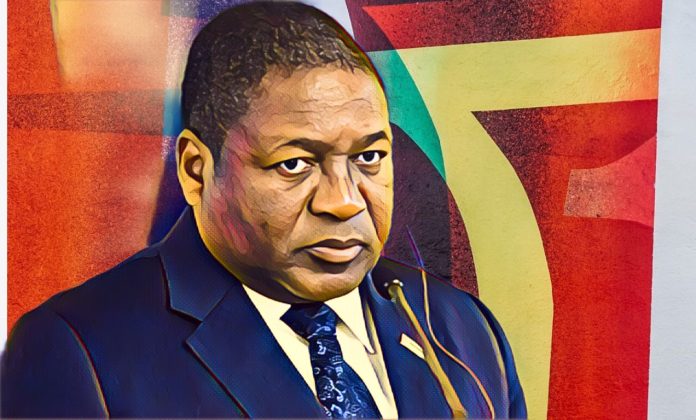KEY POINTS
- Nyusi’s commitment strengthens Mozambique’s democratic foundation and stability.
- Peaceful power transitions bolster public trust in governance systems.
- Responsible leadership enhances Mozambique’s regional influence in Southern Africa.
Mozambique’s President Filipe Nyusi has committed to resign in an important gesture of democratic integrity, ensuring a smooth transition of authority to President-elect Daniel Chapo despite the nation’s political crisis.
This pledge, an uncommon resolution in a region where political changes frequently entail conflict, represents a substantial development for Mozambique and serves as a message to African leaders with similar challenges.
Nyusi’s commitment to democracy strengthens stability
Nyusi’s endeavours to promote democracy and stability resonate with the views articulated by U.S. Vice President Kamala Harris after a disputed election, emphasizing the essential need for peaceful transitions in preserving democracy.
Nyusi’s decision occurs at an extremely important moment. The recent election in Mozambique has been characterized by allegations of voter intimidation, ballot contradictions, and alleged intrusion, which have incited violence and cast doubt on the integrity of the electoral process. Protests by the opposition have ensued, resulting in confrontations between demonstrators and security personnel. Nyusi’s decision to resign over rising tensions presents an opportunity to restore public confidence in Mozambique’s democratic institutions, illustrating that democratic values may endure even under significant political scrutiny.
The significance of this moment in Mozambique’s political history cannot be overstated. Historically, African dictators have frequently retained power by amending constitutions or manipulating electoral processes, resulting in stagnation and, in certain instances, internal warfare. The consequences of extended political conflicts can be catastrophic, as evidenced in Zimbabwe and Côte d’Ivoire, where disputed elections resulted in violence and economic distress. By committing to a peaceful transfer of power, Nyusi departs from this pattern, highlighting a governing culture that prioritizes institutional integrity, stability, and public trust above personal ambition.
A new model for political leadership
This commitment corresponds with Mozambique’s recent advancements in political transformation and economic restructuring. In recent years, the nation has achieved significant advancements in constructing a basis for growth through enhanced transparency and the creation of development frameworks. However, these advancements depend on political stability, and Nyusi’s smooth transition of authority is essential for maintaining these changes. By guaranteeing continuity, he enables President-elect Chapo to inherit a stable context to tackle the urgent economic and social challenges confronting the nation. Economic inequality, northern insurgency, and internal discord necessitate concentrated attention, which will be challenging to attain during ongoing political strife.
Nyusi’s action is crucial for regional stability. The stability of Mozambique is essential for the neighbouring nations in southern Africa due to its significant role in the region. The political instability in Mozambique compromises its advancement and threatens to destabilize the wider region. In Southern Africa, where democratic issues persist in nations like Zimbabwe and South Africa, Nyusi’s choice establishes an important model for peaceful power transitions, reinforcing democratic norms that are beneficial to the entire region. His decision illustrates that a leader’s dedication to the nation’s future may surpass personal political aspirations, providing a model for other leaders to emulate in promoting peace and democratic integrity in their own countries.
However, Nyusi’s dedication to a peaceful transition has its share of problems. As opposition factions persist in disputing the electoral results, confrontations with security personnel heighten concerns over sustained unrest. The Southern African Development Community (SADC) has convened an emergency meeting to discuss the post-election unrest, highlighting the possible threats to national and regional stability. Although political accountability is fundamental to democratic participation, the opposition’s ongoing protests threaten to induce sustained instability.
Promoting Mozambique and Africa peace and growth
The legacy Nyusi leaves is grounded in democratic principles, with his decision to relinquish power serving as a testament to his regard for Mozambique’s future and the rule of law. In a world marked by the ascendance of populism and authoritarianism, Nyusi’s actions demonstrate the necessity for leadership to prioritize national welfare before personal aspirations. His choice may motivate future Mozambican presidents and others throughout the continent to champion democratic principles and regard governing as a service to the populace. By adhering to the constraints of authority, Nyusi establishes a lasting benchmark for African leadership, emphasizing to both present and future generations the importance of prioritizing national stability and democratic integrity above all else.
As Mozambique undergoes this transition, it has the opportunity to exemplify responsible government and sustain the course of democratic reform. Nyusi’s initiatives have positioned Mozambique on an upward path that, if adhered to, may enable the nation to emerge from this phase of uncertainty with enhanced strength, unity, and stability. Nyusi’s decision offers insights for Mozambique, the region, and Africa, highlighting the significance of leadership committed to the democratic process and national welfare over personal advantage.



